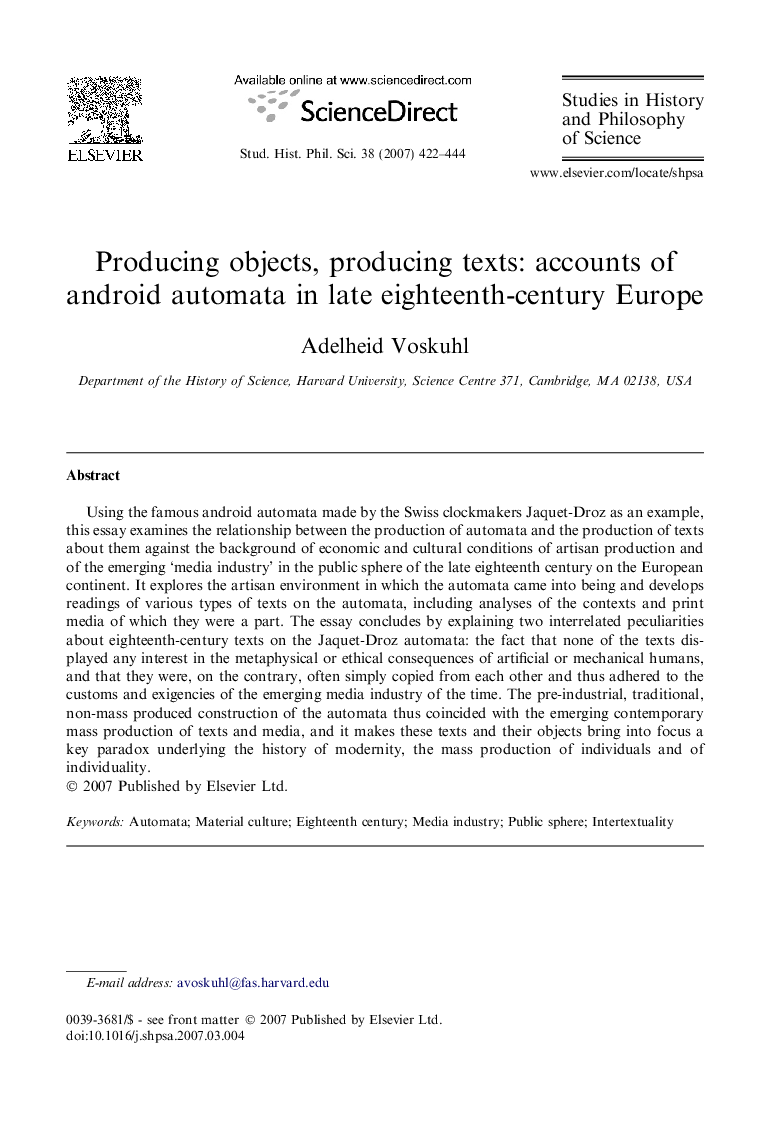| Article ID | Journal | Published Year | Pages | File Type |
|---|---|---|---|---|
| 1160502 | Studies in History and Philosophy of Science Part A | 2007 | 23 Pages |
Using the famous android automata made by the Swiss clockmakers Jaquet-Droz as an example, this essay examines the relationship between the production of automata and the production of texts about them against the background of economic and cultural conditions of artisan production and of the emerging ‘media industry’ in the public sphere of the late eighteenth century on the European continent. It explores the artisan environment in which the automata came into being and develops readings of various types of texts on the automata, including analyses of the contexts and print media of which they were a part. The essay concludes by explaining two interrelated peculiarities about eighteenth-century texts on the Jaquet-Droz automata: the fact that none of the texts displayed any interest in the metaphysical or ethical consequences of artificial or mechanical humans, and that they were, on the contrary, often simply copied from each other and thus adhered to the customs and exigencies of the emerging media industry of the time. The pre-industrial, traditional, non-mass produced construction of the automata thus coincided with the emerging contemporary mass production of texts and media, and it makes these texts and their objects bring into focus a key paradox underlying the history of modernity, the mass production of individuals and of individuality.
